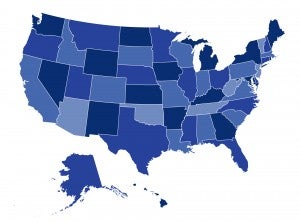Tag: out-of-pocket costs
The New Year Brings New Protection Against Surprise Medical Bills: What Consumers Need to Know

As we enter 2022, consumers are now protected from many of the worst surprise medical bills. The No Surprises Act, enacted with bipartisan support, took effect on January 1. CHIR’s JoAnn Volk describes the new protections, and what patients should keep in mind if they receive care from out-of-network providers and hospitals.
Putting Surprise Billing Protections into Practice: Biden Administration Releases First Set of Regulations

The Biden administration has issued the first in a series of rules to implement the No Surprises Act, a sweeping law to protect patients from unexpected out-of-network medical bills. In their latest post for the Commonwealth Fund, CHIR’s Jack Hoadley and Kevin Lucia review the new rules and their implications for consumers.
A Permanent Boost to Federal Premium Assistance Could Change State Approaches to ACA 1332 Waivers

The American Rescue Plan temporarily increases the availability and generosity of federal premium assistance for people who obtain coverage through the ACA marketplaces. Were Congress to make these premium subsidy enhancements permanent, states would have more breathing space to address other barriers to care, potentially with support from an ACA Section 1332 waiver. In a new work for The Commonwealth Fund, Justin Giovannelli examines how a permanent boost to federal subsidies could give states new and different opportunities to help their residents using the ACA’s waiver program.
November Research Roundup: What We’re Reading

As the autumn leaves change and the weather gets colder, we at CHIR are thankful for new health policy research. This November, Nia Gooding reviewed studies on policy interventions aimed at lowering health care costs, the impact of eliminating essential health benefits from private insurance plans, and tracking ACA marketplace premium costs for the coming year.
December Research Round Up: What We’re Reading
August Research Round Up: What We’re Reading

Summer is over, but health policy researchers have hardly taken a vacation. In August’s research round up, CHIR’s Olivia Hoppe looks into studies examining specialty drug coverage across commercial plans, the effects of the Affordable Care Act on people of different income levels, individual market premium predictions, employer-sponsored high-deductible health plans, and surprise medical bills in employer-sponsored insurance.
House Committee to Consider Expanding Health Savings Account Tax Breaks for High Income

On July 11, the full House Ways and Means Committee approved multiple health-related tax bills, many of which would expand tax breaks for Health Savings Accounts (HSAs). As Georgetown Center for Children and Families’ Edwin Park explains, these HSA bills would primarily benefit those with high incomes, rather than make health coverage more affordable for low- and moderate-income children and families.
This Tax Filing Season, Many Will Spend their Refunds on Health Care

As tax filing season comes to a close, CHIR’s Emily Curran discusses recent findings by the JPMorgan Chase Institute showing that many will spend their tax refunds on health care. The findings are consistent with other trends showing that as out-of-pocket costs increase, individuals defer medical care, which can lead to serious health and financial consequences.


